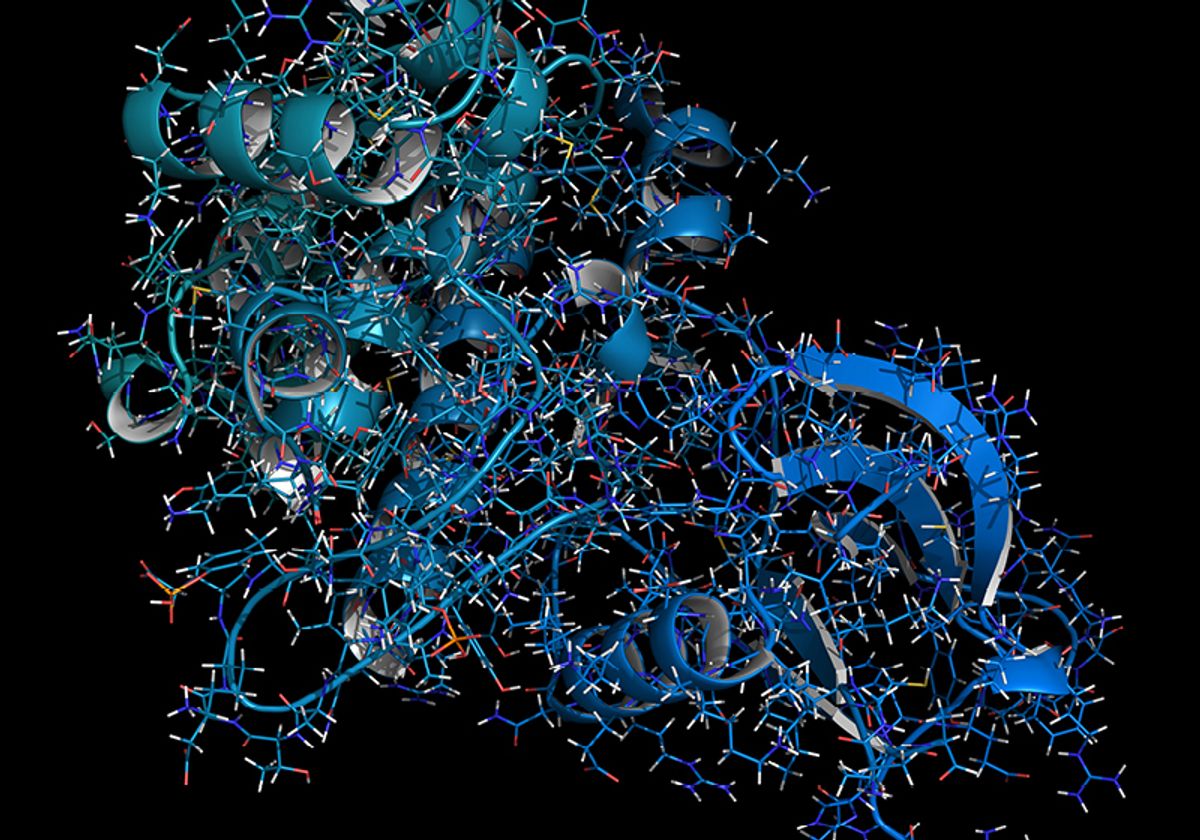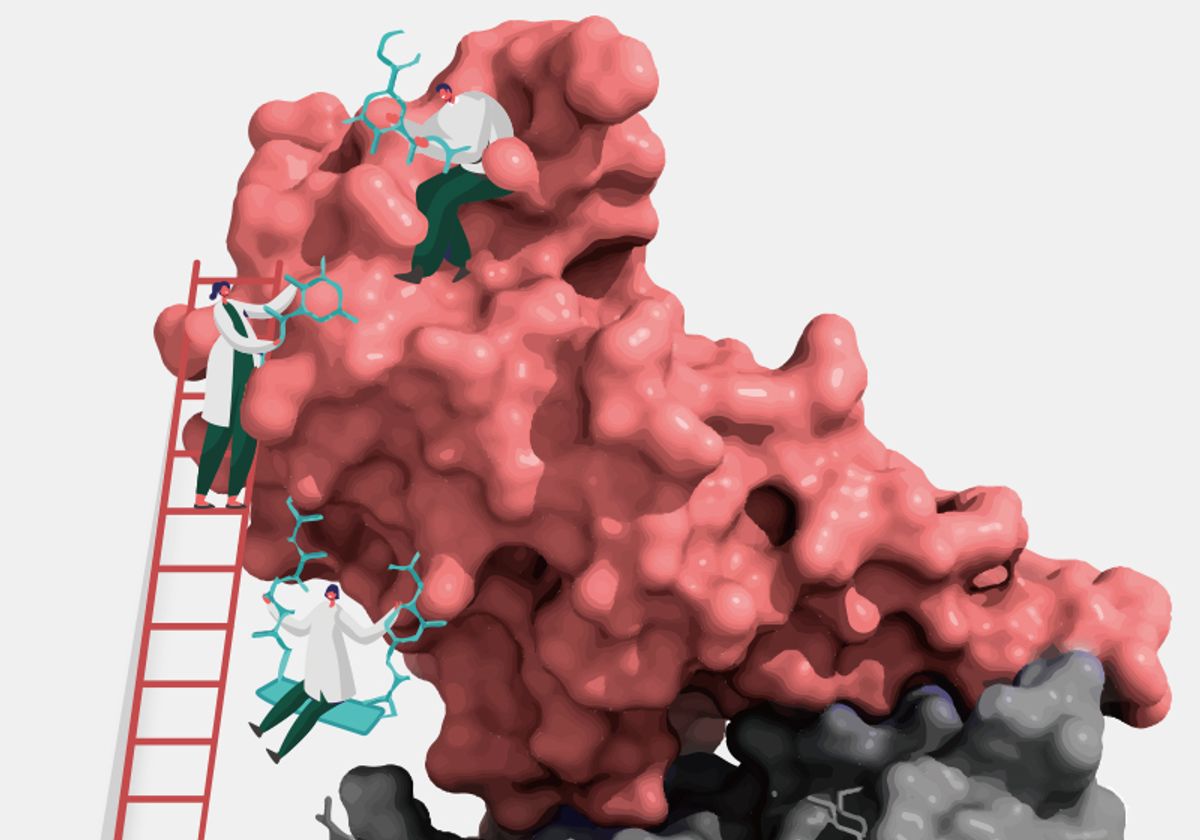
Representing over two percent of the human genome, kinases are a large and diverse enzyme superfamily, which contains 538 members.1 These enzymes facilitate the phosphorylation of substrates, such as proteins, lipids, or carbohydrates, by transferring phosphate groups from ATP or GTP molecules. This post-translational modification can alter a biomolecule’s structural conformation, activity, or localization within the cell.
The Role of Kinases in Health and Disease
Kinases are integral to signaling pathways controlling key cellular processes, such as proliferation, apoptosis, transcription, translation, metabolism, differentiation, migration, membrane trafficking, and organelle transport.2 Although the body tightly regulates their activity, genetic alterations or overexpression can disrupt the enzymes’ normal function.1 Aberrant kinase signaling plays a role in numerous pathological conditions including cancer, autoimmune diseases, neurological disorders, cardiovascular diseases, and metabolic disorders.
In 2001, the United States Food and Drug Administration (FDA) approved imatinib, marking a great advance in the use of kinase inhibitors.3 This decision not only represented a major breakthrough for patients with chronic myeloid leukemia but also validated the potential of these enzymes to serve as therapeutic targets. As of September 2024, there are now 82 FDA-approved small molecule protein kinase inhibitors. Clinicians use these drugs to treat diseases, such as non-small cell lung cancer, rheumatoid arthritis, glioma, breast cancer, and psoriasis.1 Additionally, scientists around the world are currently testing approximately 180 novel kinase inhibitors in clinical trials.
Because many of the inhibitors are effective against multiple kinases, clinicians can also prescribe the same therapy to patients with different diseases. For example, ruxolitinib serves as a treatment option for conditions such as myelofibrosis, polycythemia vera, atopic dermatitis, and graft-versus-host disease.1
Importance of Recombinant Kinases for Biomedical Research
In their quest to develop novel therapeutic inhibitors against disease-associated kinases, researchers and pharmaceutical companies often use recombinant kinases in their drug discovery workflows. By conducting in vitro kinase assays, they can analyze an enzyme’s activity under simplified but adjustable conditions. These experiments enable scientists to examine specific signaling pathways, assess kinase function in the presence of a suspected inhibitor, or determine the specificity of a small molecule drug.4 Moreover, kinase assays are scalable and thus allow researchers to perform small biochemical assays up to large-scale high-throughput drug screening.
Advancing Drug Discovery Research Through Superior Kinases
Scientists require consistency and reliability in the kinases that they use in their assays. However, it is often challenging to obtain ultra-pure, active kinases free from co-purified contaminating enzymes.5 SignalChem Biotech, which is now a part of Sino Biological, manufactures in-house a comprehensive array of highly active recombinant kinases, which display exceptional purity and batch-to-batch consistency. This collection encompasses over 1,100 high-quality human kinases including protein, lipid, carbohydrate, and mutant kinases involved in critical disease-associated signaling pathways, such as epidermal growth factor receptor (EGFR), Janus kinase 1 (JAK1), glycogen synthase kinase 3 beta (GSK3B), sphingosine kinase 1 (SPHK1), mitogen-activated protein kinase kinase 1 (MEK1), and serine/threonine-protein kinase PLK1 (PLK1). Additionally, SignalChem Biotech offers kinase drug discovery solutions spanning target discovery to compound screening, profiling, and optimization to help researchers optimize their in vitro kinase assays and accelerate their drug discovery projects. Overall, these products empower scientists to develop the next breakthrough therapeutics for a variety of diseases.
- Roskoski R. Properties of FDA-approved small molecule protein kinase inhibitors: A 2024 update. Pharmacol Res. 2024;200:107059.
- Ardito F, et al. The crucial role of protein phosphorylation in cell signaling and its use as targeted therapy. Int J Mol Med. 2017;40(2):271-280.
- Cohen P, et al. Kinase drug discovery 20 years after imatinib: Progress and future directions. Nat Rev Drug Discov. 2021;20(7):551-569.
- Stephenson EH, Higgins JMG. Pharmacological approaches to understanding protein kinase signaling networks. Front Pharmacol. 2023;14.
- Xue L, Tao WA. Current technologies to identify protein kinase substrates in high throughput. Front Biol. 2013;8(2):216-227.

